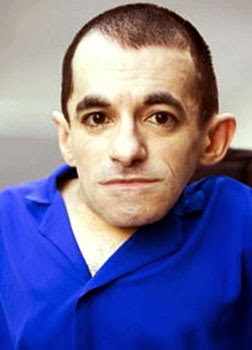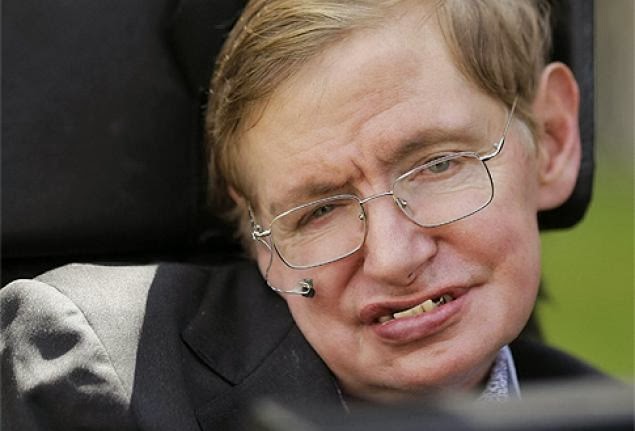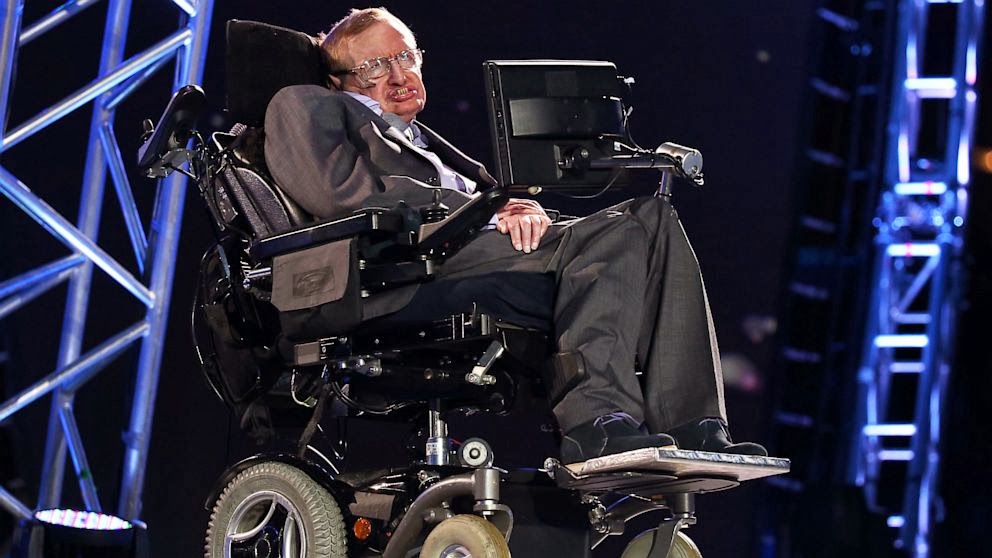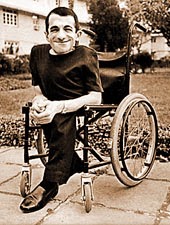ABOUT THE AUTHOR

·
Firdaus Kanga.
Firdaus Kanga.
·
Born 1960 Bombay.
Born 1960 Bombay.
·
He is a writer and actor.
He is a writer and actor.
·
Presently lives in U.K.
Presently lives in U.K.
·
Famous works –
Famous works –
1) Trying to grow.
2) Heaven on wheels.
3) Sixth
Happiness (Film)
Happiness (Film)
–
ABOUT STEPHEN
HAWKING –
ABOUT STEPHEN
HAWKING –

·
Full Name – Stephen William
Hawking.
Full Name – Stephen William
Hawking.
·
Born – 8 January 1942,
Oxford, England
Born – 8 January 1942,
Oxford, England
·
Known for-
Known for-
1) Hawking
Radiation
Radiation
2) Penrose –
Hawking theorems
Hawking theorems
3) A brief
History of Time.
History of Time.
·
Awards – 1) Albert Einstein
Award (1978)
Awards – 1) Albert Einstein
Award (1978)
2) Wolf Prize (1988)
3) Presidential Medal of Freedom (2009)

·
Stephen Hawking moves in the
wheel chair as he is a patient of a motor neuron disease related to Amyotrophic
lateral sclerosis (ALS) . He lost the vitality of his body and speaks only
through a computer voice. He is considered as a living legend in the field of
science.
Stephen Hawking moves in the
wheel chair as he is a patient of a motor neuron disease related to Amyotrophic
lateral sclerosis (ALS) . He lost the vitality of his body and speaks only
through a computer voice. He is considered as a living legend in the field of
science.
TEXT BOOK SOLUTIONS
Q. 4 Answer the
following questions.
following questions.
1. Did the prospect
of meeting Stephen Hawking make the writer nervous?
of meeting Stephen Hawking make the writer nervous?
Ans- Indeed, the writer was nervous and tensed. He was about to meet
the world famous scientist Stephen Hawking. This feeling will make any human
nervous. Stephen Hawking, the great astrophysicist of the world is not an
ordinary person to meet. Besides, the writer was nervous because Stephen
Hawking achieved the great height in spite of the paralyzed body which was a
matter of awe and admiration.
the world famous scientist Stephen Hawking. This feeling will make any human
nervous. Stephen Hawking, the great astrophysicist of the world is not an
ordinary person to meet. Besides, the writer was nervous because Stephen
Hawking achieved the great height in spite of the paralyzed body which was a
matter of awe and admiration.
ii) Did he at the
same time feel very excited? If so, why?
same time feel very excited? If so, why?

Ans- Yes, undoubtedly the prospect of meeting Stephen Hawking made Firdaus
Kanga excited. The writer was about to meet someone who is world famous in
spite of the fact that he is confined in the wheel chair because of a motor
neuron disease. As he was also confined in wheelchair, Firdaus Kanga was
excited to behold Stephen Hawking who is a living inspiration and encouragement
as he did not submit to his physical deficiencies.
Kanga excited. The writer was about to meet someone who is world famous in
spite of the fact that he is confined in the wheel chair because of a motor
neuron disease. As he was also confined in wheelchair, Firdaus Kanga was
excited to behold Stephen Hawking who is a living inspiration and encouragement
as he did not submit to his physical deficiencies.
Q.2. Guess the first questions put to the
scientist by the writer.
scientist by the writer.
Ans.- As we come across the text, it can be assumed
that the writer might have asked Stephen Hawking at first if he had been brave
to reach where he had.
that the writer might have asked Stephen Hawking at first if he had been brave
to reach where he had.
Q. 3 Stephen Hawking said, “I ‘have had no
choice”. Does the writer think there was a choice? What was it?
choice”. Does the writer think there was a choice? What was it?
Ans.- The writer perhaps considered the choice which
common people go for. Common people with this kind of physical disabilities go
for leading a life of hopelessness, dejection and devoid of any positive
activity. Likewise he could stepped on the path of the common people, but he thought otherwise
and established himself with a great difference.
common people go for. Common people with this kind of physical disabilities go
for leading a life of hopelessness, dejection and devoid of any positive
activity. Likewise he could stepped on the path of the common people, but he thought otherwise
and established himself with a great difference.

Q.4 “I could feel his anguish”. What could be
the anguish?
the anguish?
Ans.- This is the anguish of Stephen Hawking. He has a disintegrating
physic which does not allow him to function smoothly. His mind is filled with
buoyant thoughts, but his physic is like a dead corpse which does not allow him
to communicate with others naturally.
physic which does not allow him to function smoothly. His mind is filled with
buoyant thoughts, but his physic is like a dead corpse which does not allow him
to communicate with others naturally.
To express his thoughts, he needs to depend on the
computer. Communicating through computer often turns out to be a futile effort.
Whenever he fails to expand his thoughts through the machine, he feels anguish.
computer. Communicating through computer often turns out to be a futile effort.
Whenever he fails to expand his thoughts through the machine, he feels anguish.
Q.5 What endeared the scientist to the writer
so that he said he was looking at one of the most beautiful men in the world?
so that he said he was looking at one of the most beautiful men in the world?
Ans. – Both of them shared their views about different
aspects of being disabled and churned inspiration. Mesmerized at Stephen
Hawking’s greatness, Findaus Kanga questioned him if he got annoyed if anyone
disturbed him. At this Stephen Hawking smiled and immediately the writer
witnessed the most beautiful person of the world. This beauty is not the physical beauty. This is the beauty of
that master who showed humanity true intelligence, a reflection of greatness
and satisfaction of high attainments. This is the beauty of the mental strength
which does not know surrender, which does not learn to confine in the physical
limitations.
aspects of being disabled and churned inspiration. Mesmerized at Stephen
Hawking’s greatness, Findaus Kanga questioned him if he got annoyed if anyone
disturbed him. At this Stephen Hawking smiled and immediately the writer
witnessed the most beautiful person of the world. This beauty is not the physical beauty. This is the beauty of
that master who showed humanity true intelligence, a reflection of greatness
and satisfaction of high attainments. This is the beauty of the mental strength
which does not know surrender, which does not learn to confine in the physical
limitations.
Q.6 Read aloud t he
description of the beautiful’ man. Which is the most beautiful sentence in the
description?
description of the beautiful’ man. Which is the most beautiful sentence in the
description?
Ans.- According to me the most beautiful description lies in the
following sentence –
following sentence –
“You look at his eyes which can speak, still and they are
saying something huge and urgent – it is hard to tell what.”
saying something huge and urgent – it is hard to tell what.”
Q- 1) i) If ‘the lantern’ is the man, what would its
‘walls’ be?
‘walls’ be?
Ans. – If the lantern is the man, then walls should
be the body of the man.
be the body of the man.
ii) What is
housed within the thin walls?
housed within the thin walls?
Ans. Within the thin walls there is the incandescence or inner glow of
man.
man.
iii) What general
conclusion does the writer draw from this comparison?
conclusion does the writer draw from this comparison?
Ans. Body is not important for a person’s success in life. Body is
just an accessory and is irrelevant to one’s internal spirit. It is like a case
of shadows which has to do nothing to what we mean as success. Soul is what
matters. If you are the strongest and bear indomitable spirit success is yours.
No physical trouble can stop you.
just an accessory and is irrelevant to one’s internal spirit. It is like a case
of shadows which has to do nothing to what we mean as success. Soul is what
matters. If you are the strongest and bear indomitable spirit success is yours.
No physical trouble can stop you.
Q.8 What is the scientist’s message to the
disabled?
disabled?
Ans. Unique and significant was the thought of Stephen Hawking when he
talked about disabled. According to him a disabled should concentrate on their
strength. He said that the disabled should concentrate on what they are good at.
talked about disabled. According to him a disabled should concentrate on their
strength. He said that the disabled should concentrate on what they are good at.
Q.9 Why does the written refer to the guitar
incident? Which idea does it support?
incident? Which idea does it support?
Ans.- While discussing about disabled, Firdaus Kanga agreed to Stephen
Hawking’s opinion. He gave his own example to justify the statement. Once he
tried to have mastery over Spanish guitar which was larger than him. Out of resentment
one day he unstringed it and was very
happy. Through this he wants show his support to the opinion of Stephen Hawking
i.e. the disabled should concentrate on what they are good at.
Hawking’s opinion. He gave his own example to justify the statement. Once he
tried to have mastery over Spanish guitar which was larger than him. Out of resentment
one day he unstringed it and was very
happy. Through this he wants show his support to the opinion of Stephen Hawking
i.e. the disabled should concentrate on what they are good at.
Q.10. The writer expresses his great gratitude to
Stephen Hawking. What is the gratitude for?
Stephen Hawking. What is the gratitude for?
Ans. The writer here shows his highest obeisance to Stephen Hawking
for Stephen Hawking had been a constant source of inspiration for him. He
considered him as an embodiment whom he believed and moved towards. He finds
his bravest self in Stephen Hawking. If he had been brave, like Stephen
Hawking, he would have achieved great success.
for Stephen Hawking had been a constant source of inspiration for him. He
considered him as an embodiment whom he believed and moved towards. He finds
his bravest self in Stephen Hawking. If he had been brave, like Stephen
Hawking, he would have achieved great success.
He expressed his greatest gratitude for he could realize
that in this disabled state even he realized what great achievement he could
attain.
You may also like –
that in this disabled state even he realized what great achievement he could
attain.
You may also like –